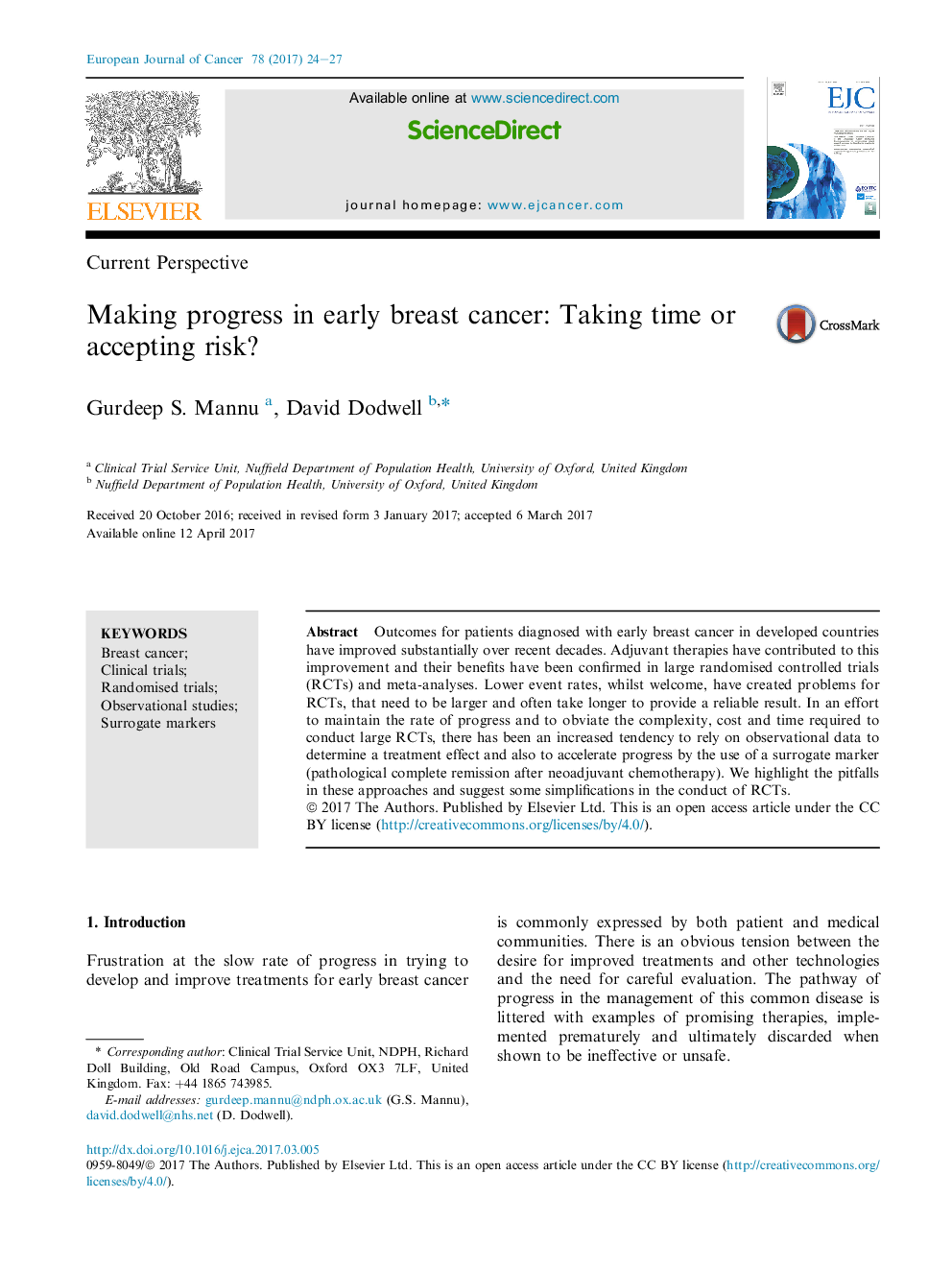| Article ID | Journal | Published Year | Pages | File Type |
|---|---|---|---|---|
| 5526284 | European Journal of Cancer | 2017 | 4 Pages |
â¢Surrogate markers are yet to be developed and validated in early breast cancer.â¢Reliance on observational data to evaluate treatment effects is risky.â¢Prospective randomised trials are difficult but remain vital to progress.â¢Research approval processes need simplification and streamlining.
Outcomes for patients diagnosed with early breast cancer in developed countries have improved substantially over recent decades. Adjuvant therapies have contributed to this improvement and their benefits have been confirmed in large randomised controlled trials (RCTs) and meta-analyses. Lower event rates, whilst welcome, have created problems for RCTs, that need to be larger and often take longer to provide a reliable result. In an effort to maintain the rate of progress and to obviate the complexity, cost and time required to conduct large RCTs, there has been an increased tendency to rely on observational data to determine a treatment effect and also to accelerate progress by the use of a surrogate marker (pathological complete remission after neoadjuvant chemotherapy). We highlight the pitfalls in these approaches and suggest some simplifications in the conduct of RCTs.
